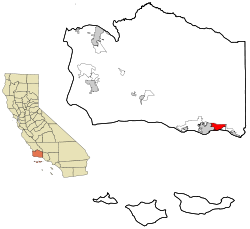
Sociology defines culture to be the way people interact. This interaction may be physical, symbolic, or a combination of both. This interaction usually lasts for a few months. But it can continue into modern times. Important to remember about culture is its ability to change. It is a dynamic process marked by change.
Individualism
Individualistic culture values the individual over collective value and emphasizes individualism. This makes individuals more self-reliant, confident and more optimistic. Individualism, however, can cause discord within groups and lead to a loss of unity. Here are some reasons why individualism makes culture a poor place. Continue reading to find out about other sociological characteristics that make cultures individualistic.

Community
Sociology says culture is a combination of many intangible aspects that make up social life. These include shared beliefs, values or communication systems. Culture can also refer to material objects that are common to a group. These factors are different from the economic and social aspects of a society. Culture can influence a person's behavior, identity, and decision-making. It gives a person a unique perspective and a sense of direction.
Rituals
A ritual is any social activity or event that's conducted in a specific way, for religious or non-religious purposes. The ritual can often include a ludic part, where participants perform ritualistic activities with great care. Participants are expected to pay close attention to their bodies and behaviours during rituals. Due to its formality, rituals can be distinguished from other social interactions. It may be an ancient custom or a new cultural innovation, but it has a significant impact on the way that we live our lives today.
Shared symbols
Language, symbols and norms are all elements of culture. Sociology defines culture as something shared between groups of people. The term culture is used in both the sociological and anthropological context. While the latter holds that cultures are universal in their nature, anthropologists hold that cultures are specific to individuals. Whatever their origin, shared symbols and norms are a powerful influence on society. It can be traced back the humankind's beginnings.

Languages
The American Sociological Association defines culture to include "all aspects of the social group, including language and beliefs as well as rules." It also includes individual and group communication. Languages are often the foundation of individual identity and group identity. They can also be a key element in social differentiation. Understanding the social effects of language and culture differences can be helped by studying language and culture. It can also be helpful to learn about the history of language.
FAQ
What is pop culture of today?
Pop Culture is the art form of the 21st century. It encompasses all forms of popular entertainment, from music, film, TV, video games, fashion, advertising, comics, etc. Author Neil Postman coined the term in his book Amusing Ourselves To Death (1985). Pop is a type of mass communication that relies on cheap tricks or formulaic devices to give the illusion of spontaneity.
He said that people don't experience true joy because they are conditioned to look for media experiences that make them feel better than others. He also said that this kind of cultural expression contributed to the decline of critical thinking skills in young adults.
Pop culture can also be referred to by the terms popular culture or consumerism.
Who was the first to coin the term Pop Music
Frank Zappa invents the term pop music. Pop music was the name he used to describe his music.
He said that he wanted to write music that would appeal to everyone. This is why he called the music "pop music".
Zappa also invents the phrase "You'll know it's pop when ..."". It means that something is extremely popular if you have many people enjoying it. Michael Jackson's Thriller albums are among the most-sold.
Zappa's definition of pop music is different from how it is now. Pop music is today all music. However, back then only certain music was considered popular.
Are Tik Tok and its pop culture?
Yes! It's not just for teenagers anymore. Anyone can use these short videos to show how they feel, express themselves, and share life moments with friends.
More than 200 million people use the app every day all over the globe. This number continues to grow by millions every single day.
TikTok gives brands the opportunity to build meaningful relationships and connect with customers through this amazing platform.
Many influencers have established huge followings on TikTok. These creators create original content to engage audiences all over the globe.
So what are waiting for? These are the four best ways to profit from this trend.
-
Create Viral Content
-
Engage Influencers
-
Use Visuals Effectively
-
Get creative with your audience
Why is pop music popular?
Pop music is very much loved for its fun and joy! Pop music makes you happy and gives you a sense of freedom. People listen to pop music and are free to think about anything but themselves. They don't have to worry about what other people think. Pop music is a hugely popular genre. People enjoy songs that make their heart sing. If you're feeling down, you can always turn on the radio and hear some upbeat tunes. You may even find yourself singing along. Pop music has been a huge success over the years.
What is pop media culture?
Pop culture is all around. It is everywhere: TV, radios, films, music, magazines and newspapers, websites, social media, etc. It is everywhere we go, 24/7. It affects everything from music to clothing and food to politics and religion. So what exactly is pop culture? Wikipedia says that popular culture, or popular culture, refers only to ideas and products designed to be mass-produced in society. Many people think that this term applies to television shows, movies, music, fashion, and other forms of entertainment. Pop culture goes beyond entertainment. Pop culture can be described as anything that is consumed by mass audiences, including video games, toys, clothing and fast food.
What does pop culture teach us?
Our society today places more importance on material goods than all other things. This is especially true for young people. They spend hours a day staring at screens. They look at screens and watch videos, as well as play video games and surf the Internet. All of this distracts them from focusing on school work. They end up failing classes as a result.
Everyone wants to fit in. That means being popular. Popularity is dependent upon having money, clothes and other possessions. This makes it easy for some people to do wrong.
Technology has made us dependent. The internet has made it possible to access all sorts of information. Not all information is correct. There are many false rumors floating around the Internet. These rumors are quickly spread by people sharing them on social media. It's easy to post something without checking whether it's true.
People have lost the ability to think critically. They believe what they see online. They trust what they hear on television and in magazines. They stop thinking for their own sake. Instead, they follow the flow of others.
Relying on others for information can cause us to lose control of our lives. Pop culture teaches you to depend on others. It can also lead to lazy people. Although the truth is out there and we often don't find it, it can make us lazy.
How did pop music come into being?
It was accidental. It was an accident. Someone accidentally knocked the piano over as they were playing around on New Years Eve in 1920.
The recording company loved the music and decided to make it a single.
This was the first hit single.
Pop music has been the most loved form of musical entertainment since then.
Statistics
- Yet a Nielsen study shows they account for 42% of the country's most-watched content on streaming services. courtesy Nielsen (npr.org)
- Less than a decade later, that statistic rose to 90% (Dager, n.d.). (socialsci.libretexts.org)
- In 1987, US films captured 56% of the European film market. (socialsci.libretexts.org)
- [17][18][19]Definition[edit]According to author John Storey, there are various definitions of popular culture. (en.wikipedia.org)
- According to CNBC.com, “more than 70% of the film's revenue came from countries outside the US” (https://www.cnbc.com/2019/01/08/aqua...nal-sales.html, ret. 8/18/19). (socialsci.libretexts.org)
External Links
How To
What is pop music in movies?
Popular Movies Culture encompasses all aspects Entertainment - books, magazines newspapers, television programs and websites.
Movies can be divided into three types: comedy/dramatic, horror (action/aventure), fantasy, science fiction and romance.
Movie plots follow a predictable path of events that end with a satisfying conclusion.
This formula will determine the success of a movie.
Here are some common plot points:
-
The protagonist must overcome all obstacles to achieve their goal.
-
A villain who opposes a protagonist throughout the film.
-
A moral dilemma that requires the protagonist's to make a decision.
-
The twist that ends all.
You may have to reevaluate the outline or concept of your story if it doesn't fit within one of these categories before you start writing.
Pay attention to these questions:
-
How do I establish my setting?
-
What does my protagonist want?
-
Why should readers care so much about my story?
-
Where is my story heading?
-
Who is my main person?
-
Are there going to be any conflicts?
-
What is the climax
-
What is your resolution?
-
Are you happy with the ending?
-
Do I need to introduce new characters
-
Are there multiple settings for my story?
-
Do you have subplots?
-
Do you see any main themes?
-
Can I tell the whole story in one chapter?
-
Am I using dialogue effectively?
-
Is it clear and concise in my language?
-
Does my vocabulary match the context?
-
Are you using active voice rather than passive voice?
-
Are there any spelling errors?
-
Is my grammar correct?
-
Are there too many adjectives?
-
Is there anything else I could improve?
-
What is your first impression after I finish editing?
It is your job to not only write a great book, but also to publish it.